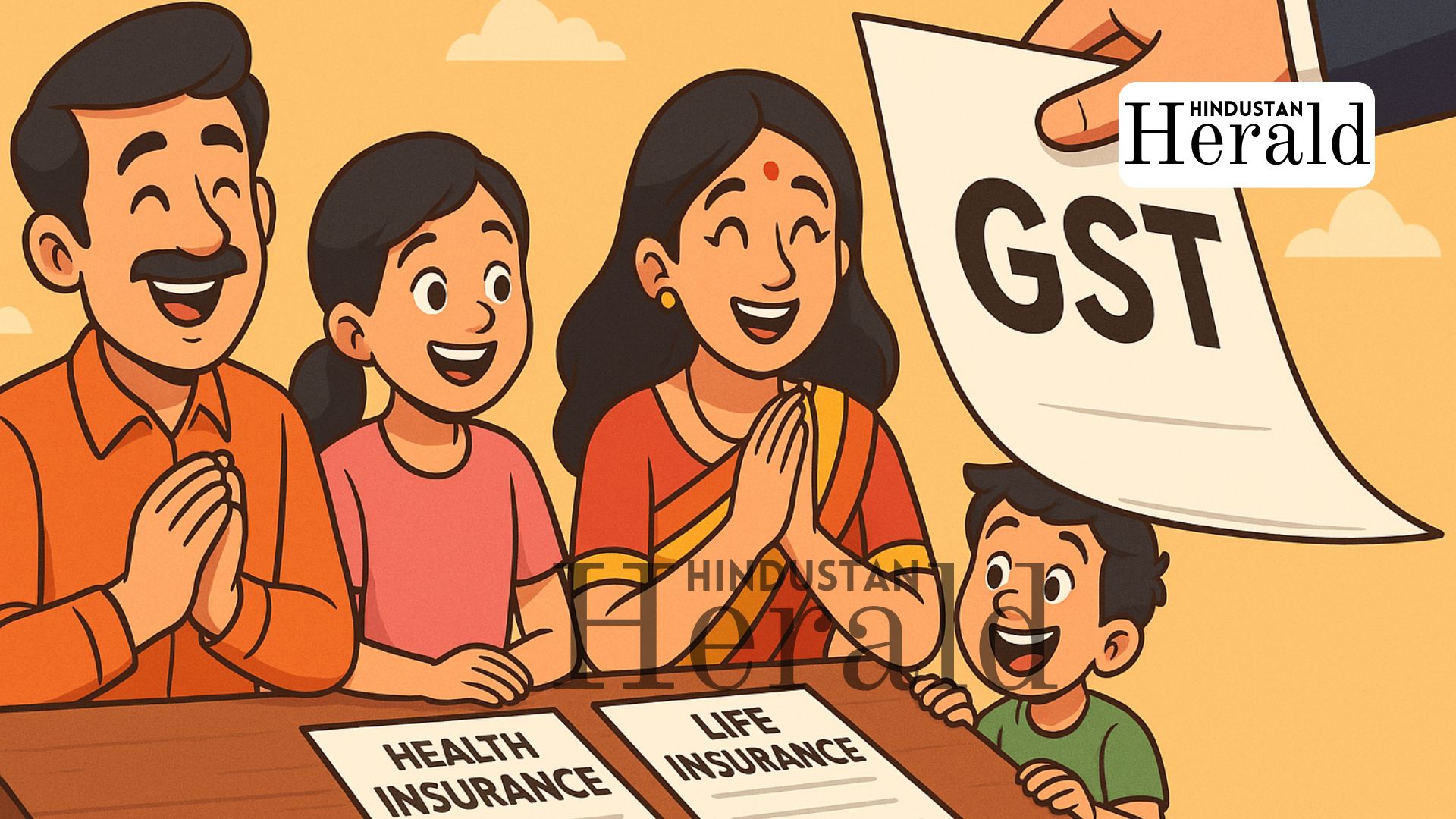New Delhi, September 29: Over the past few weeks, a curious phrase has started doing the rounds in insurance circles, “Zero GST Mein Super Plan.” You might have seen it on social media posts, in WhatsApp forwards, or even pitched by an over-eager agent. But here’s the catch: there is no official policy or government scheme by that name. What it really points to is the new GST exemption that now applies to individual life and health insurance premiums.
And that change is real. As of September 22, 2025, anyone buying or renewing a personal life or health cover no longer pays the 18 percent GST that was tacked on until recently.
The Decision That Sparked The Buzz
The move came out of the 56th GST Council meeting held earlier this month. Finance ministers from across states and the Centre agreed that premiums for individual policies should be taken out of the tax net altogether. The idea was simple: if the government wants to deepen insurance penetration in India, treating it like a luxury service makes little sense.
From now on, the premium you see on the table is the premium you pay no GST slapped on top. Group insurance, however, stays where it was, at 18 percent.
Why It Feels Like A “Super Plan”
For years, that extra tax has been one of the quiet deterrents to taking insurance, especially among middle-income families. A policy worth ₹25,000 a year suddenly became ₹29,500 after GST. For someone juggling EMIs and school fees, that difference mattered.
So yes, there is genuine relief here. But the story isn’t all straightforward. Insurers no longer get to claim input tax credit (ITC) on the costs they incur for commissions, marketing, and office overheads. That means a big chunk of their expenses now sits outside the tax chain. Industry voices have already hinted they may adjust base premiums upward by 3 to 5 percent to cover that gap.
Even so, financial planners say policyholders should come out better off overall, at least in the short run.
Industry’s Uneasy Smile
Insurance companies have welcomed the move publicly. Behind the scenes, though, there’s a scramble. As The Times of India reported, the Life Insurance Council is lobbying hard for one more concession: remove GST from agent commissions as well. Right now, those commissions are still taxed at 18 percent, which continues to swell costs for insurers.
Another headache is timing. Customers who renewed their policies in August, just weeks before the change kicked in, are understandably annoyed. Their friends with September renewals get cheaper deals while they’re stuck waiting till next year. Insurers are bracing for some angry calls.
What You, The Buyer, Should Know
If your renewal date falls after September 22, you’re in luck. The GST drop applies automatically, no matter which company you’re with. If an agent tries to package it as an “exclusive” or a “special plan,” that’s marketing gloss, not reality.
For those who already renewed, the benefit will have to wait until the next cycle. There’s no retroactive refund in sight.
Financial advisors also warn against complacency. With insurers absorbing the ITC hit, some may slowly increase premiums, so don’t be surprised if the relief narrows over the next year or two.
A Bigger Story About GST
This isn’t just about insurance. The exemption fits into the government’s wider “next-gen GST” reform, which aims to simplify India’s messy slab structure. The stated goal is to eventually run with two main slabs 5 percent and 18 percent, while pushing essential services like healthcare and insurance out of the tax net.
Seen in that light, insurance going zero-GST is symbolic. It signals that the state views protection and healthcare less as optional products and more as social necessities. That shift could carry long-term implications for how financial services are regulated and sold.
So What Exactly Is “Zero GST Mein Super Plan”?
Strip away the hype, and it’s just a catchy label slapped on a blanket reform. Every individual’s life or health policy is now effectively a “zero GST plan.” There’s nothing exclusive or limited about it.
But perhaps the phrase caught on because it captures something the policy world often fails to: plain relief. For ordinary families used to watching their premiums climb year after year, seeing a number drop even slightly does feel “super.”
Stay ahead with Hindustan Herald — bringing you trusted news, sharp analysis, and stories that matter across Politics, Business, Technology, Sports, Entertainment, Lifestyle, and more.
Connect with us on Facebook, Instagram, X (Twitter), LinkedIn, YouTube, and join our Telegram community @hindustanherald for real-time updates.
Former financial consultant turned journalist, reporting on markets, industry trends, and economic policy.






